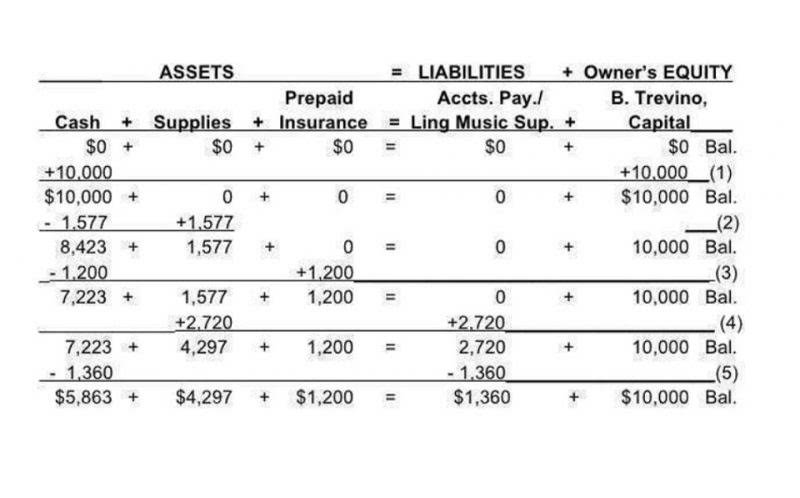
Taxpayers have the right to pay only the amount of tax legally due, including interest and penalties, and to have the IRS apply all tax payments properly. The Taxpayer Bill of Rights takes these rights from the tax code and groups them into 10 categories. To help taxpayers interacting with the IRS understand their rights, the agency outlines them in Publication 1, Your Rights as a Taxpayer. During this conference you will have the opportunity to discuss your case with a designated hearing officer from the tax division whose actions you are contesting.
What if I can’t pay my taxes due to hardship?

They also have the right to speak with a supervisor about inadequate service. Communications from the IRS should be clear and easy to understand. The IRS has a duty to protect your information and must take swift action against anyone who uses that information outside the scope of its intended purpose. Only the taxpayer and certain legal orders can justify the release of confidential information shared with the IRS. Communications with the IRS and those who professionally handle your tax preparation fall under the same confidentiality rules as an attorney. Taxpayers who have questions or need assistance have the right to contact an IRS representative and expect a professional and courteous interaction.
Taxpayer Bill of Rights 1: The Right to Be Informed
- Think of it as a promise from the IRS to you, ensuring they don’t overstep their authority or leave you confused.
- The Office of Appeals is separate from IRS compliance functions and ensures an impartial review.
- Your right to finality limits audits to three years from the date you filed your return, unless there’s fraud or significant errors.
- However, if the tax was paid by withholding or estimated payments, and you failed to timely file a return, any refund must be claimed within two years from the original due date of the return.
- All taxpayers have rights any time they interact with the IRS.
- IRS Publication 1, Your Rights as a Taxpayer, includes a full list of taxpayers’ rights.
- They’re not just feel-good words—they’re backed by laws in the Internal Revenue Code and enforced to protect you.
If that office can’t resolve the taxpayer’s issues, they will forward the case to Appeals for consideration. Appeals officers review cases that taxpayers submit, meet with the taxpayer informally, and consider the taxpayer’s https://space-magic.shop/calculating-the-average-collection-period-formula/ position and the IRS’s position in a fair and unbiased manner. The IRS won’t inform you when this period is about to expire; therefore, it is up to you and your client to keep track of this deadline to protect the refund.
- It’s important that all taxpayers know and understand their rights.
- The IRS will include Publication 1 when sending a notice to taxpayers on a variety of issues, such as an audit or collection matter.
- Finally, the IRS must consider circumstances that may keep you from properly meeting your tax obligations.
- See details about Atomic, in their Form CRS, Form ADV Part 2A and Privacy Policy.
- At TaxLawsInUSA.com, we’re all about making taxes less intimidating.
- The IRS has a duty to properly calculate and assess taxes and to adjust accounts if errors or overpayments are discovered.
Taking Action
Our team of tax experts has years of experience helping people like you navigate IRS challenges. We follow the highest standards, ensuring you get accurate, reliable advice. Plus, our resources, like our guide on IRS Key Responsibilities, give you theresponsibilities-of-irs/), keep you informed and empowered. When you work with us, you’re not just getting help—you’re gaining a partner who knows your Taxpayer Bill of Rights inside and out.

Taxpayers’ Bill of Rights
Taxpayers are entitled to a fair and impartial appeal of most IRS decisions. Taxpayers have the right to receive a written response from the IRS regarding a decision. Taxpayers generally have the right to take their case to court. It is your responsibility as a tax professional to ensure you protect your client’s right to claim a tax refund. Tax professionals must be vigilant in tracking deadlines and advising their clients to take timely actions. Paying taxes is never fun, but as a taxpayer, you have legitimate rights that protect you in your dealings with the IRS.

For more information on managing your tax responsibilities, consider exploring resources like FileLater.com for guidance on tax extensions. As outlined in the taxpayer bill of rights, you are entitled to receive prompt, courteous, and professional assistance in your dealings with the IRS. Communications should be easily understandable, and you have the right to speak to a supervisor if you receive inadequate service. Taxpayers generally have the right to take their cases to court. Taxpayer rights include the expectation that the IRS will fairly consider their inability to pay tax liabilities or submit information in a timely fashion due to uncontrolled circumstances. Taxpayer Advocate Services are available to assist those who are experiencing hardship or to help resolve a tax issue that is being delayed through the IRS.

The tax system is complex and frustrating for a lot of people, but, by law, the Department of Revenue is not intentionally antagonistic. We believe everyone should be able to make financial decisions with confidence. Do you have a Outsource Invoicing disputed claim with the IRS or feel as though your rights have been violated? The attorneys are experienced in tax law and can help you challenge an improper opinion by the IRS. Adopted by the IRS in 2014, this document outlines ten basic rights to which every taxpayer is entitled.
The right to a fair and just tax system

Taxpayers have the right to know what they need to do to comply with the tax laws. They are entitled to clear explanations of the laws and IRS procedures in all tax forms, instructions, publications, notices and correspondence. They have the right to be informed of IRS decisions about their tax accounts and to receive clear explanations of the outcomes. The Taxpayer Bill of Rights is a cornerstone document that highlights the 10 fundamental rights taxpayers have when dealing with the Internal Revenue Service. The Taxpayer Bill of Rights (TBOR) is a cornerstone document that highlights the 10 fundamental rights taxpayers have when dealing with the Internal Revenue Service (IRS). Getting familiar with the taxpayers’ Bill of Rights is part of becoming an informed taxpayer.
- For example, taxpayers have the right to know when the IRS has finished an audit.
- And with professional help from TaxLawsInUSA.com, you’ll have the expertise to make tax season a breeze.
- Let’s walk through each of the ten rights, explain what they mean, and share tips on how to use them.
- Use Direct Pay to securely pay your taxes from your checking or savings account.
- The One, Big, Beautiful Bill has a significant effect on federal taxes, credits and deductions.
- But then she learned about the Taxpayer Bill of Rights through a friend.
- Taxpayers have the right to pay only the amount of tax legally due, including interest and penalties, and to have the IRS apply all tax payments properly.
The Taxpayer Bill of Rights was created to ensure we know what to expect when dealing with the IRS. Use Direct Pay to securely pay your taxes from your checking or savings account. Call now or fill in the form below to get taxpayer bill of rights help with your tax and IRS issues today. Any unauthorized disclosure is not only unethical but also illegal, with potential consequences for those responsible. You are entitled to question or provide evidence against an IRS decision, and the IRS must consider your arguments before taking final action.